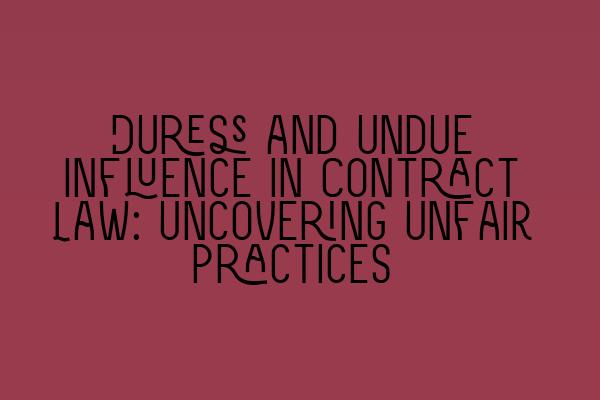Duress and Undue Influence in Contract Law: Uncovering Unfair Practices
In the world of contract law, it is essential to ensure that agreements are entered into freely and voluntarily by all parties involved. However, there are certain situations where one party may exert undue influence or employ duress to manipulate another party into entering into a contract against their will. These unfair practices undermine the principles of fairness and justice that underpin contract law.
It is important to understand the concepts of duress and undue influence and how they can impact the validity of a contract. Let’s delve deeper into these issues and explore their ramifications.
Duress in Contract Law:
Duress refers to a situation where one party forces another to enter into a contract by using threats or coercion. This coercion can take several forms, such as physical violence, blackmail, or economic pressure. When a contract is entered into under duress, it is considered voidable, meaning the victimized party has the option to either uphold or reject the contract.
Examples of duress can range from an employer threatening to terminate an employee’s job if they do not sign a new contract with unfavorable terms, to a landlord threatening to evict a tenant if they do not agree to unreasonable rental increases. In both instances, the coerced party may feel compelled to agree to the terms under duress, which undermines the principles of voluntary consent and fairness.
Undue Influence in Contract Law:
Undue influence occurs when one party takes advantage of a position of power or authority over another to influence or manipulate their decision-making process. This power dynamic can arise in various relationships, such as between family members, business partners, or medical professionals and their patients.
In cases of undue influence, the victimized party may feel compelled to enter into a contract due to the dominant party’s persuasive tactics or deceptive practices. It is crucial to note that undue influence does not necessarily involve threats or coercion but rather exploits the vulnerable position of the influenced party.
